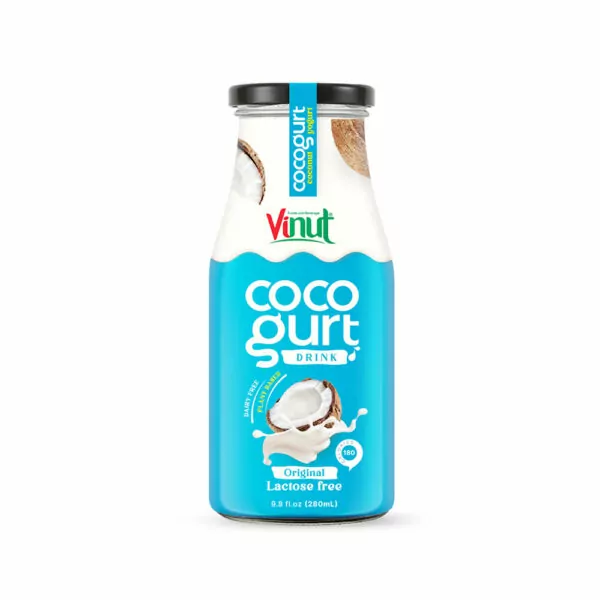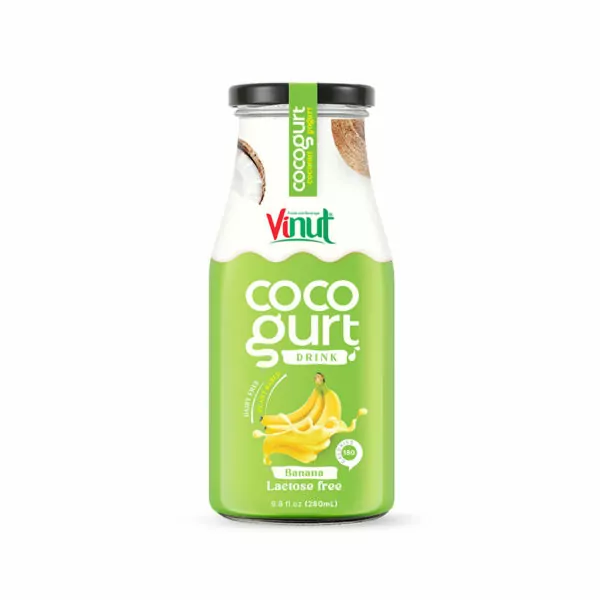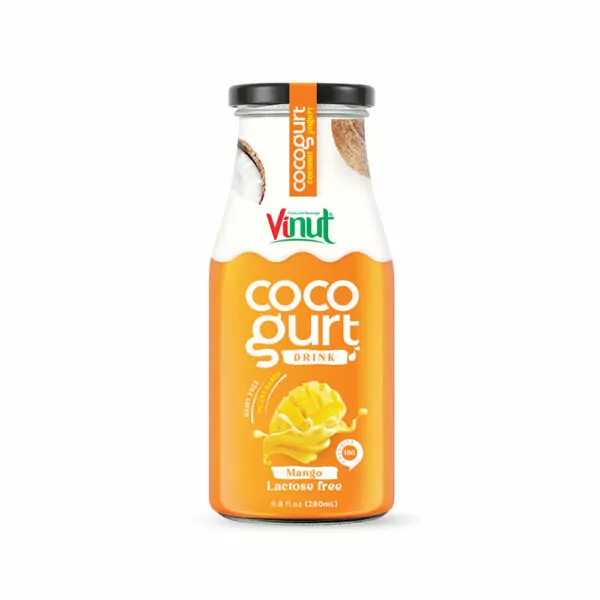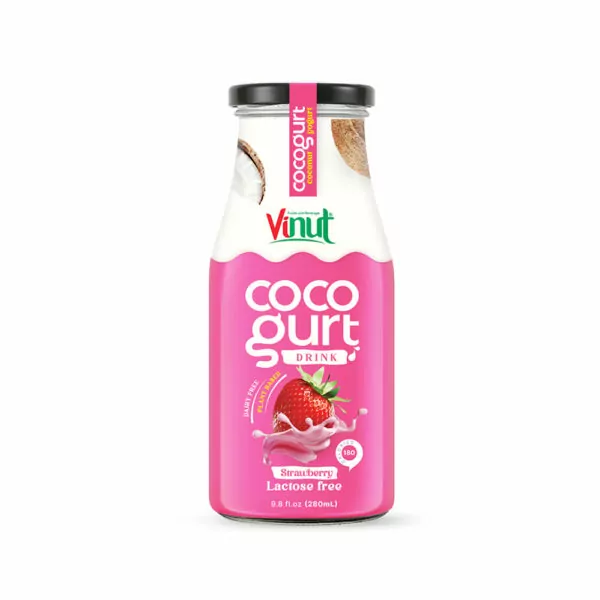Drinking Coconut Milk Every Day: What Happens to Your Body?

Summary
In the ever-evolving landscape of health-conscious living, coconut milk has emerged as a true superfood, captivating palates and garnering widespread acclaim for its remarkable nutritional profile. With its creamy texture and subtly sweet essence, coconut milk seamlessly enhances the flavors of countless dishes while simultaneously offering a multitude of health benefits.
Join us on a journey as we delve into the potential for improved well-being and explore the various facets of this versatile and delectable ingredient.
Health Benefits of Coconut Milk
Coconut milk is a veritable powerhouse of nutrients, offering a plethora of health benefits that make it a worthy addition to any diet. Let’s explore how this plant-based marvel can positively impact our well-being.

You May Experience Better Blood Sugar Control
One of the most compelling advantages of it lies in its ability to support healthy blood sugar levels. Unlike many conventional dairy products, this milk is naturally low in carbohydrates, making it an ideal choice for individuals seeking to maintain stable blood sugar levels.

The Role of Dietary Fat and Fiber
It is predominantly composed of carbohydrates and healthy fats. When combined with protein- and fiber-rich foods, this triumvirate of nutrients creates a synergistic effect that helps regulate blood sugar levels, preventing the dreaded spikes and crashes that can wreak havoc on energy levels and overall well-being.
Medium-Chain Triglycerides (MCTs)
What sets this plant-based milk apart from other plant-based alternatives is its unique fat composition. It is rich in medium-chain triglycerides (MCTs), a type of saturated fat that the body can easily metabolize for energy. Unlike long-chain fatty acids, MCTs are rapidly absorbed and transported to the liver, where they are quickly converted into ketones. These ketones serve as an alternative fuel source for the brain and muscles, potentially reducing the reliance on glucose and promoting better blood sugar control.
Fiber Content
It also boasts a decent fiber content, further contributing to its blood sugar-regulating properties. Dietary fiber plays a crucial role in slowing down the absorption of sugars and promoting a gradual release of glucose into the bloodstream, preventing sudden spikes and subsequent crashes.
You May Support Weight Management
In the ongoing battle against weight management, this milk can be a valuable ally. Its unique composition and satiating properties make it a viable option for those seeking to maintain a healthy weight or embark on a sustainable weight loss journey.

Low in Calories and Carbohydrates
Compared to traditional dairy milk, this milk is lower in calories and carbohydrates, making it a more suitable choice for individuals adhering to calorie-controlled or low-carb diets. This low-calorie and low-carb profile can help prevent excessive calorie intake and promote a healthy energy balance.
High in Fiber and Protein
It is a good source of both fiber and protein, two nutrients that play a crucial role in promoting feelings of fullness and satiety. The fiber content in coconut milk can help slow down the digestion process, leading to a prolonged sense of fullness, while the protein content contributes to increased satiety signals in the brain.
MCTs and Thermogenesis
The MCTs found in this milk may also contribute to weight management by increasing thermogenesis, the process by which the body generates heat and burns calories. Research suggests that consuming MCTs can lead to a slight increase in metabolic rate, potentially aiding in calorie-burning and weight-management efforts.
You May Improve Heart Health
Coconut milk‘s potential benefits extend beyond its impact on blood sugar control and weight management. Its unique nutritional composition may also play a role in supporting cardiovascular health.

Cholesterol and Triglyceride Levels
While this plant-based milk is rich in saturated fats, the specific types of saturated fats present in this milk have been shown to have a neutral or even beneficial effect on cholesterol levels. Studies have demonstrated that consuming it may help maintain healthy levels of high-density lipoprotein (HDL) cholesterol, also known as “good” cholesterol, which plays a crucial role in reducing the risk of heart disease.
Antioxidant Properties
Coconut milk is a natural source of antioxidants, including vitamin E, which can help protect the body from oxidative stress and inflammation, two key contributors to the development of heart disease. These antioxidants may also help reduce the risk of atherosclerosis, a condition characterized by the buildup of plaque in the arteries, further supporting cardiovascular health.
Potassium Content
Coconut milk is a rich source of potassium, an essential mineral that plays a vital role in regulating blood pressure. By maintaining healthy potassium levels, it may help mitigate the risk of hypertension, a significant risk factor for heart disease and stroke.
You May Decrease Inflammation
Inflammation is a natural response of the body’s immune system, but chronic inflammation can lead to a host of health issues, including autoimmune disorders, metabolic diseases, and even cancer. Coconut milk may offer a natural way to combat inflammation and promote overall well-being.

Anti-inflammatory Properties
Coconut milk contains several bioactive compounds with potent anti-inflammatory properties. These compounds, including polyphenols and antioxidants, can help neutralize free radicals and reduce inflammation throughout the body.
Lauric Acid
One of the primary fatty acids found in coconut milk is lauric acid, a medium-chain triglyceride with well-documented anti-inflammatory and antimicrobial properties. Lauric acid has been shown to inhibit the production of inflammatory compounds, such as prostaglandins and leukotrienes, thereby reducing inflammation and associated symptoms.
Potential Benefits for Arthritis and Autoimmune Conditions
The anti-inflammatory properties of coconut milk may make it a valuable addition to the diets of individuals suffering from inflammatory conditions like arthritis or autoimmune disorders. By reducing inflammation, coconut milk may help alleviate symptoms and improve overall quality of life for those affected by these conditions.
Coconut Milk Nutrition
To fully appreciate the potential benefits of coconut milk, it’s essential to understand its nutritional composition. Let’s delve into the specific nutrients found in this versatile ingredient.

Macronutrients
Coconut milk is a rich source of several essential micronutrients, including:
- Fat: Coconut milk is primarily composed of healthy fats, with a unique composition of medium-chain triglycerides (MCTs) like lauric acid and capric acid. These fats are easily metabolized and provide a quick source of energy for the body.
- Carbohydrates: While coconut milk is relatively low in carbohydrates compared to other plant-based milk, it still contains a moderate amount of carbohydrates, primarily in the form of dietary fiber.
- Protein: Coconut milk is not a significant source of protein, but it does contain small amounts of this essential macronutrient.
Micronutrients
In addition to its macronutrient content, coconut milk is a valuable source of various micronutrients, including:
- Vitamins: Coconut milk is a good source of vitamins C, E, B1, B3, B5, and B6, which play crucial roles in various bodily functions, including immune support, antioxidant protection, and energy metabolism.
- Minerals: Coconut milk is rich in minerals like iron, selenium, sodium, calcium, magnesium, and potassium, all of which are essential for maintaining overall health and well-being.
Antioxidants
It is a natural source of antioxidants, including polyphenols and tocopherols (vitamin E). These antioxidants help neutralize free radicals and protect the body from oxidative stress, which can contribute to the development of various chronic diseases.
Cons to Consider
While coconut milk offers numerous potential benefits, it’s essential to consider some potential drawbacks and limitations to ensure a balanced and well-informed approach to incorporating this plant-based milk into your diet.
Higher Saturated Fat
One of the primary concerns surrounding coconut milk is its high saturated fat content. While the saturated fats in coconut milk are primarily medium-chain triglycerides (MCTs), which are metabolized differently than long-chain saturated fats, excessive consumption of any type of saturated fat can potentially increase the risk of cardiovascular disease and other health issues.
It’s important to note that the impact of saturated fats on overall health is still a subject of ongoing research, with some studies suggesting that the link between saturated fat intake and heart disease may not be as strong as once believed. However, moderation is key when it comes to consuming coconut milk or any other high-fat food.
Lower in protein
Another consideration is that coconut milk is relatively low in protein compared to cow’s milk or soy milk. Protein is essential for various bodily functions, including muscle repair and growth, immune function, and hormone production. If you rely heavily on coconut milk as a dairy alternative, you may need to ensure that you’re obtaining an adequate amount of protein from other sources in your diet.
Can Contain Added Sugar
Some commercially available coconut milk products may contain added sugars to enhance flavor. Excessive sugar consumption has been linked to numerous health issues, including obesity, type 2 diabetes, and heart disease. When selecting coconut milk, opt for unsweetened varieties to minimize your sugar intake and maximize the potential health benefits of this plant-based milk.
Is Coconut Milk Safe for Everyone?
While coconut milk is generally considered safe for consumption for the majority of individuals, there are some exceptions and considerations to keep in mind.

Allergies and Sensitivities
Coconut allergies are relatively rare but can occur in some individuals. If you have a known allergy to coconuts, it’s essential to avoid this milk and products derived from coconuts to prevent adverse reactions. Additionally, some people may experience digestive issues or sensitivities to coconut milk, particularly if they have underlying gastrointestinal conditions like irritable bowel syndrome (IBS).
Medium-Chain Triglyceride Sensitivity
For some individuals, particularly those with certain metabolic disorders or digestive issues, consuming foods high in medium-chain triglycerides (MCTs) like coconut milk may lead to gastrointestinal distress, including bloating, gas, and diarrhea. If you experience these symptoms after consuming coconut milk, you may need to limit your intake or opt for MCT-free alternatives.
Interactions with Medications
If you take medications regularly, especially those that require dietary restrictions or have specific interactions with certain foods, consult with your healthcare provider before incorporating coconut milk into your diet. While coconut milk is generally safe, it’s essential to ensure that it won’t interfere with your medication regimen or underlying health conditions.
The Bottom Line
Coconut milk offers a range of potential health benefits, from supporting blood sugar control and weight management to improving heart health and reducing inflammation. With its unique nutritional composition and versatility in cooking and baking, coconut milk can be a valuable addition to a balanced diet.
However, it’s essential to be mindful of potential drawbacks, such as its high saturated fat content, lower protein levels, and the possibility of added sugars in commercial products. By choosing unsweetened varieties, moderating your intake, and balancing your overall dietary choices, you can enjoy the benefits of coconut milk while maintaining a well-rounded approach to nutrition.
Some Coconut Milk Drinks Available at Vinut’s store:
 280ml Vinut Cocogurt (Coconut milk) drink Original (Lactose free, Dairy free, Plant based)Read more
280ml Vinut Cocogurt (Coconut milk) drink Original (Lactose free, Dairy free, Plant based)Read more 280ml Vinut Cocogurt (Coconut milk) drink with Banana (Lactose free, Dairy free, Plant based)Read more
280ml Vinut Cocogurt (Coconut milk) drink with Banana (Lactose free, Dairy free, Plant based)Read more 280ml Vinut Cocogurt (Coconut milk) drink with Mango(Lactose free, Dairy free, Plant based)Read more
280ml Vinut Cocogurt (Coconut milk) drink with Mango(Lactose free, Dairy free, Plant based)Read more 280ml Vinut Cocogurt (Coconut milk) drink with Strawberry (Lactose free, Dairy free, Plant based)Read more
280ml Vinut Cocogurt (Coconut milk) drink with Strawberry (Lactose free, Dairy free, Plant based)Read more
